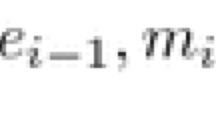Abstract
The Dutch Book Argument shows that an agent will lose surely in a gamble (a Dutch Book is made) if his degrees of belief do not satisfy the laws of the probability. Yet a question arises here: What does the Dutch Book imply? This paper firstly argues that there exists a utility function following Ramsey’s axioms. And then, it explicates the properties of the utility function and degree of belief respectively. The properties show that coherence in partial beliefs for Subjective Bayesianism means that the degree of belief, representing a belief ordering, satisfies the laws of probability, and that coherence in preferences means that the preferences are represented by expected utilities. A coherent belief ordering and a utility scale induce a coherent preference ordering; a coherent preference ordering induces a coherent belief ordering which can be uniquely represented by a degree-of-belief function. The preferences (values) and beliefs are both incoherent or disordered if a Dutch Book is made.
Similar content being viewed by others
References
de Finetti, B. (1990). Theory of Probability. New York: Jony Willey & Sons, Inc.
Hacking, I. (2001). An Introduction to Probability and Inductive Logic. Cambridge: Cambridge University Press
Howson, C. (1998). “The Bayesian Approach.” In: P. Semts (ed.), Handbook of Defeasible Reasoning and Uncertainty Management Systems, Vol. 1. Dordrecht/Boston/London: Kluwer Academic Publishers
Howson, C., and Urbach, P. (1989). Scientific Reasoning: The Bayesian Approach. La Salle/Illinois: Open Court Publishing Company
Ramsey, F. (1989). “Truth and Probability.” In: P. Gardenfors and Nils-Eric Sahlin (eds.), Decision, Probability, and Utility. Cambridge: Cambridge University Press
Savage, L. (1954). The Foundations of Statistics. New York: Jony Willey & Sons, Inc.
Author information
Authors and Affiliations
Corresponding author
About this article
Cite this article
Xiong, W. Implications of the Dutch Book: Following Ramsey’s axioms. Front. Philos. China 6, 334–344 (2011). https://doi.org/10.1007/s11466-011-0142-6
Received:
Published:
Issue Date:
DOI: https://doi.org/10.1007/s11466-011-0142-6



